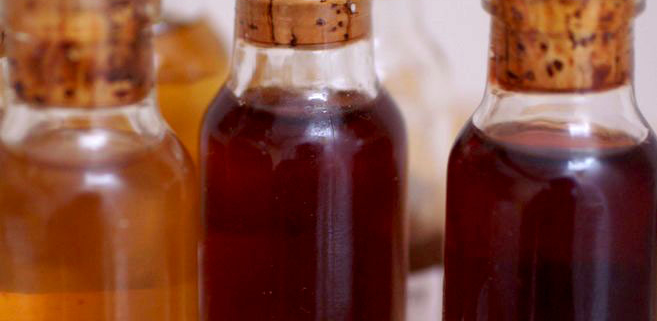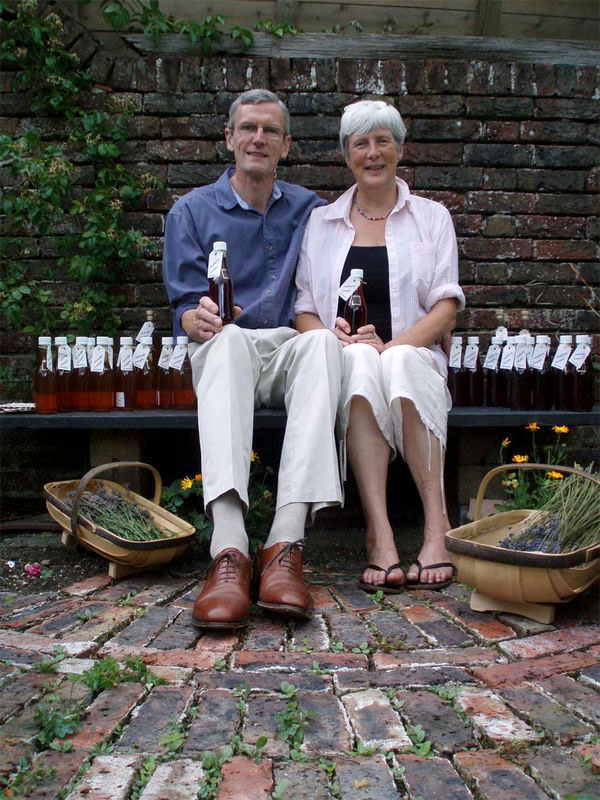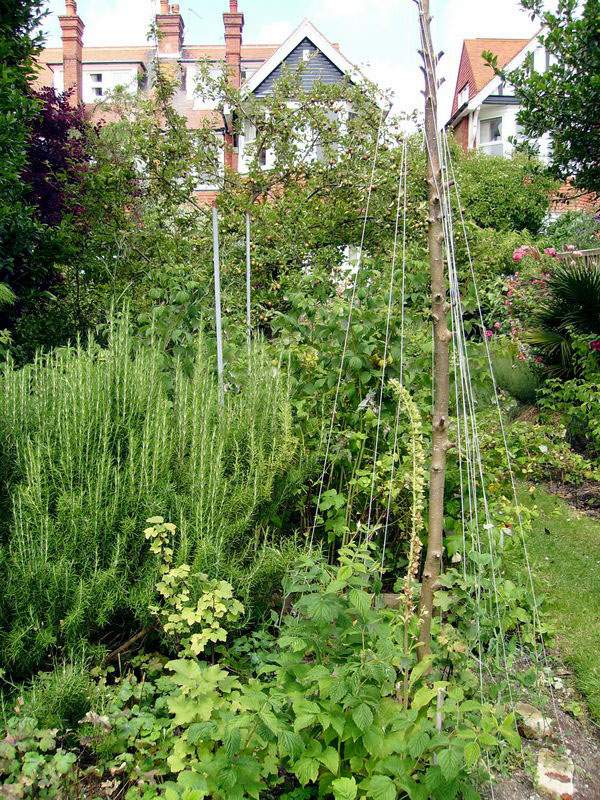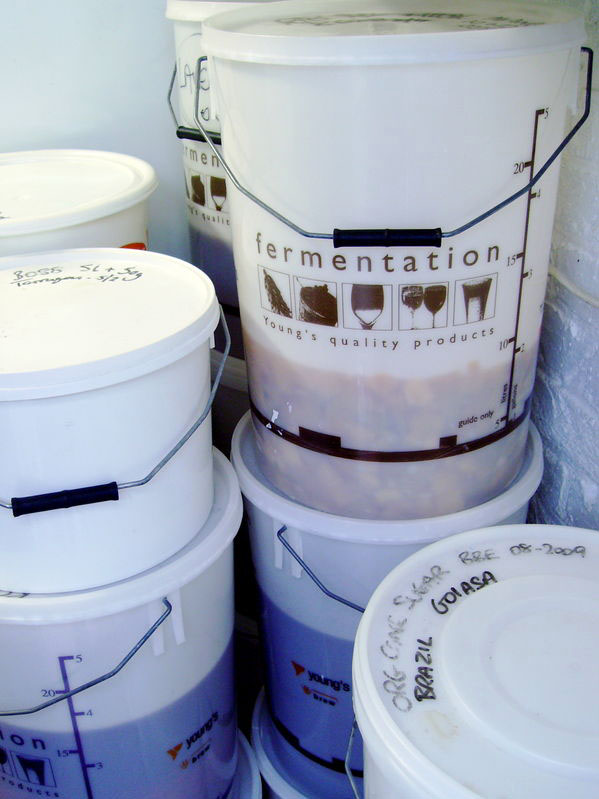The best fruit vinegars
It all started with a few tiny bottles, small enough to slip into my hand luggage without causing suspicion at the airport. Next thing I knew, my initial curiosity had developed into a full-blown obsession. I was finding just about any excuse to pop the baby-sized corks and drizzle a few drops into anything from my daily vinaigrette to gazpacho, while at the same time trying to make my precious supply last as long as possible.
Just as I was shaking out the dregs in a slightly despairing way, it was time to get on a plane and meet the makers of these extraordinary fruit vinegars, who happen to live in the same town as my parents in southeast England. Eastbourne, the sleepy seaside town where I spent many summers as a child and landed my first newspaper job at the age of 17, is not a place I would ordinarily consider a source of inspiring ingredients: my idea of a treat while growing up was tooth-breaking sticks of rock candy from the pier or fish and chips greasy enough to soak through the articles I’d written. But Britain has changed, and the success of a small vinegar company operating out of a home kitchen proves my theory that quality rarely goes unrecognized.
Mary and John Stratton live in a Victorian house surrounded by a garden that is not as unruly as it might first appear. Here, I soon learn, there is little that happens by accident. John, who formerly managed the restaurant and bars at a university residence and also taught food hygiene, brings precision and an unusually sensitive palate to the business; Mary, a schoolteacher in her previous life, loves to flip through recipe books seeking fresh ideas. A glut of redcurrants from her mother’s garden provided the original inspiration 25 years ago – not knowing what to do with them, she eventually found a recipe for sweet vinegar in an old English cookbook and adjusted the sugar to her taste. Stratta‘s most popular vinegar was born, though she didn’t yet know it. She continued to make the vinegar every year for a growing circle of fans until her grown-up children encouraged her to start selling it at the local farmers’ markets.
Four years ago Mary gave up her job to devote her time to vinegar, and there hasn’t been a sour moment since. This year Stratta is one of 18 finalists in the Waitrose “Made in Britain” competition, which has already led to national recognition. For the moment, John and Mary are still able to work out of their custom-designed kitchen and converted garage, whose floors are stacked with white buckets designed for making beer while the shelves Stratta’s vinegars taste like the very essence of the fruit, and with good reason. Mary and John start with high-quality white wine vinegar from the English company Aspall and add an equal weight of fruit, which they steep for as long as it takes to extract all its flavor. For raspberries this can take up to two weeks, though few vinegar makers would bother to wait that long. They then filter the vinegar as many times as it takes for it to come out perfectly clear, before sweetening it to taste with blond cane sugar. The secret lies, of course, in the quality of the fruit and flowers. The lavender and mulberries come from their garden; other fruits (presumably not the mangoes) are sourced at local farms. They are especially proud of their medlar vinegar, made with an ancient fruit related to rosehip that I sometimes see in Nice by the name of nèfle. When a fruit crop is small, they simply make less of that type of vinegar.
The Strattons suggest all sorts of uses for their vinegars, from marinating meats to adding a spoonful to tomato sauce, but because my supply is still a bit limited I’ve been reserving it lately mostly for vinaigrettes. Morello cherry vinegar with either pistachio oil or mint-infused olive oil is a favorite at the moment, and I love the mulberry vinegar with delicate Nice olive oil (it turns out that mulberry trees were once common in the back country here, though most have been cut down). I’ve never been very enamored with balsamic vinegar (except for the really expensive stuff), and even less so now that I can dip bread in olive oil mixed with raspberry or damson vinegar.
If you live in the UK and would like to get your hands on some Stratta vinegar, check the stockists page on their website. Otherwise, you might like to try making fruit vinegar by following the instructions above. John assures me that it’s easy, though the price of fruit in Nice this summer has discouraged me from trying it so far. Surprisingly, I’ve found no fruit vinegar in France that can measure up to Stratta’s. Who knows, maybe we’ll be seeing it in the Bon Marché’s gourmet supermarket one day?







Rosa, I just came across your website and I’m intrigued by the idea of friut infused vinegar ( I never heard of it! ). I live in the USA and am lucky enough to have wonderful neighbors that share their figs, blueberries and honey from their yards, with me. I’d love to try making some but and not sure what to use them on! Can you give me some suggestions? Thank you!!!
Thanks Rosa. That sounds great too – maybe the cherries with some pork. I cant wait to try these vinegars. Thanks again for your blog and information.
You can keep the fruit and heat it with a little sugar to make sweet-and-sour pickles to serve with cheese or meats. When using balsamic vinegar as a base, you probably won’t need to sweeten the vinegar much or at all, as the vinegar is already sweet.
Thanks Rosa! I have put some of the cherries and some of the strawberries in cider vinegar and a few more in balsamic (as that’s what I had). Will get some red and white wine vinegar tomorrow and make up a few more little samples. Can’t wait to see what they turn out like. Do you discard the fruit after its soaked or is there some use for that?
Alison, once I have strained out the fruit, I weigh the liquid and use about 20 percent cane sugar to sweeten the vinegar. It is possible to use cider vinegar as well, and I have used red wine vinegar with red fruits like cherries. Enjoy!
Hi Rosa (and thank you John for your comments and to Mary for bringing these fruit vinegars back from the past). Fruit vinegars sound great. I’m going to try making some and see how they go. I bought heaps of cherries, strawberries and raspberries at the markets last weekend (I’m in Australia) to make some jam and wondered what else I could do with them and was delighted to come across your blog. How much sugar do you suggest using? Can you use other vinegars eg cider vinegar? Thank you.
Here we are nearing the end of 2014, and I eventually have a chance to check on Rosa’s blog. Amy, we do simmer the vinegars for 10 minutes after adding the sugar in order to pasteurize them. As we are using fresh fruits and unpasteurized vinegar it is possible for the vinegar forming bacteria to keep on working which could result in the jelly like ‘vinegar mother’ forming in the bottle. Although perfectly harmless, it may be slightly disconcerting to those who know not what it is. Hence we pasteurize.
How did your vinegars turn out…..and which fruits did you use?
Best wishes for Christmas
John of Eastbourne
Amy, when I have made fruit vinegars I only boil them for a few moments, I think 10 minutes is probably more than necessary! Boiling the vinegar pasteurizes it and helps it keep longer.
Hi,
Thank you so much for sharing your recipe.
We don’t have many good quality stockists to choose from in Australia.
I am about to try my first batch, other recipes suggest boiling the mixture with the sugar for 10 minutes prior to bottling? Is there a reason why they would do this?
Ps sussane how did your passion fruit batch go?
Thank you
Amy
Stuart, I’m curious about Yorkshire pudding as a dessert. Is that the same as the Yorkshire pudding served alongside a roast, only sweet?
My grandmother used to make raspberry vinegar and we used to have some on sponge puddings and also it goes well with yorkshire pudding (assuming the pudding is a dessert and not part of your Sunday roast)
Thank you Rosa, I’m loving your advice. I have just started my passionfruit viengar experiment as we have an great harvest now in our beautiful region of Geophraphe Bay near Margaret River, Western Australia.
I will let you know how it turns out!
Greetings from sunny Dunsborough,
Sussane x
Elaine, the general directions I give in this post for making fruit vinegar can be adapted to any fruit. Now you just need to find some mulberries!
would love a recipe for mulberry vinegar?
Margaret, you can find a list of suppliers under “stockists” at the website http://www.stratta.org. Enjoy!
could you tell me where to purchase Stratta vinegars I live in surrey
webought our last at Wisley
Susan, all of these vinegars go fantastically with nut oils – I’m a bit of a nut oil fanatic myself, but that’s another story!
These are enchanting, Rosa. Vinegar is such an easy way for flavor without the calories. I’d like to mix and match all of these with nut oils for vinaigrettes.
Eileen, that’s so interesting, I’ve never heard of fruit vinegars being taken so seriously in France! And what a good idea to combine them with olive oil tasting.
These vinegars sound amazing! Makes me think of when I was at the Olive Oil Institute in St. Remy several years ago, and I sat at a counter and was served samples of about 10 different fruit vinegars. Up until that time I had never had anything like that. The vinegars available to me in St. Paul, MN. didn’t come close.